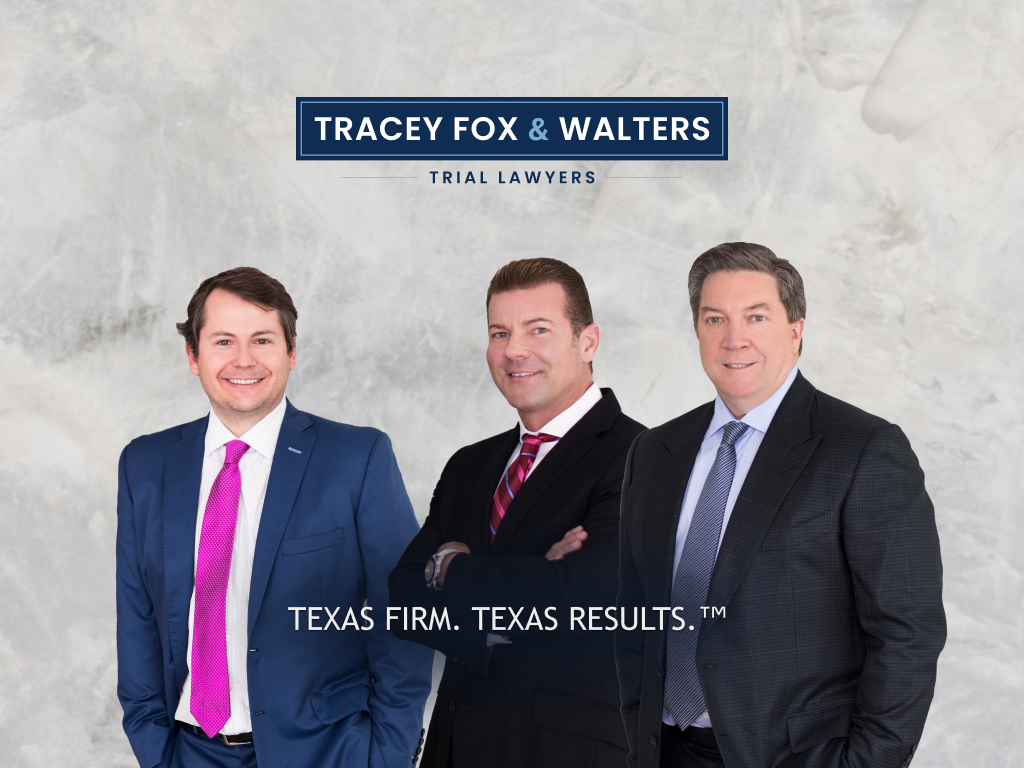Hit-and-runs can be frustrating and complicated for car accident victims seeking injury compensation.
Usually, an at-fault driver in a car, truck, or motorcycle accident will stay at the crash site and take at least some responsibility for what they’ve done. Hit-and-run drivers, however, do all they can to escape responsibility for the pain and damage they cause.
If the driver is found, the case proceeds much like any other car accident. But unfortunately, hit-and-run drivers are often never found, and that can make the ensuring legal situation complicated.
Nevertheless, if you were injured in a hit-and-run or by a “phantom vehicle,” you may still get money for your injuries and damages. An experienced car accident lawyer will be able to help you find the path to compensation for the crash.
Insurance coverage that can apply to hit-and-run accidents
Texas, like most states, requires people to purchase minimum car insurance before legally getting on the road. Every Texas driver needs to have liability insurance worth at least:
- $30,000 per person for personal injuries ($60,000 per accident)
- $25,000 for property damage
However, your liability insurance doesn’t pay for your injuries; it covers injuries you cause to someone else. If you’re hurt in an accident caused by someone else, their liability insurance should cover you – which, again, becomes a problem when the at-fault driver is unknown.
There are several types of car insurance coverage that could be tapped for a payout after a hit-and-run accident, including:
The hit-and-run driver’s liability coverage
If the driver is identified, you can put in a third-party claim with their insurance provider, just as you would after any other car accident. You may also be able to file a lawsuit against the hit-and-run driver (in which their interests will be represented by their insurance provider).
Collision coverage
Collision insurance pays for repairs to your vehicle and other property damaged in a wreck, regardless of fault. This insurance is optional under Texas law, but if your vehicle is financed, you are most likely required to carry it by the lienholder.
Medical payments coverage
This type of insurance pays for your and your passengers’ medical bills. The insurance will also cover you if you are injured while riding in someone else’s vehicle, out walking, or on a bicycle.
Personal Injury Protection (PIP)
PIP is like medical payments coverage, but it also pays for some non-medical costs such as lost wages. In Texas, PIP is required unless you opt out in writing.
Uninsured and underinsured motorist insurance (UIM)
This may be the most valuable kind of insurance in the case of a hit-and-run accident. UIM kicks in if the driver who hit you doesn’t have enough insurance to pay for your medical expenses, or if they have no insurance at all. In most situations, if the hit-and-run driver is not found, you can file a UIM claim with your own insurance provider, because an unknown driver can be treated the same as an uninsured motorist.
In Texas, your insurance provider must offer you UIM. If you don’t want it, you must decline the coverage in a written statement to the company. This is almost always a bad idea – UIM is not expensive, and the minor increase in premiums is well worth the protection it provides. If you don’t have UIM, your ability to recover depends on the at-fault driver’s choices, and you don’t want your financial future to hinge on someone else’s decision.
What should I do after a hit and run?
Just because the at-fault driver took off doesn’t mean you can as well. Texas law requires you to report accidents causing injury or significant property damage to the police and wait at the accident scene for an officer to arrive (unless you must leave to get emergency medical attention).
After you’ve called 911 to report the hit-and-run, there are certain steps you should take to strengthen your claim for injuries, property damage, lost wages, and other losses.
Take photos of the scene
The police will do their own crash investigation, but their job is to find the hit-and-run driver, not to make sure you get compensated for your injuries. And remember, the investigating officer most likely did not see the collision, so your firsthand knowledge is critical. Your investigation will be focused on building your claim. This means you need photos of the crash site, any visible injuries, and property damage from multiple angles and distances.
Identify witnesses
Take down their names, contact information, and anything they can remember. It is a good idea to do this yourself in case you have a key witness who must rush off before the police get there.
Make a crash timeline
Memories can turn hazy quickly, especially after the trauma of an accident. Write down everything you can remember about the crash as soon as you are able. Include times, dates, road signs, names, weather conditions, nearby businesses or landmarks, and a description of the vehicle and driver that hit you. Then, start keeping a journal of your injuries, your symptoms, and the effects on your life.
Get medical attention
If you are injured, see a doctor right away, whether that’s your primary care provider, an urgent care clinic, or a hospital emergency room. Tell the provider who sees you that you were in a car accident and describe all your symptoms in as much detail as you can. This not only protects your health, but also creates a record of your injuries.
Report the accident to your insurance company
Inform your insurance provider promptly, but don’t go into too much detail or comment on fault for the accident. Answer their questions truthfully but succinctly, sticking to the facts of what happened.
Call a lawyer
The insurance adjuster assigned to your claim may say that you don’t need a lawyer to file a claim. This is technically true but usually unwise. Getting the right lawyer to fight for your hit-and-run accident claim is critical to getting the most money for your injuries and other damages.
A Texas lawyer who understands your local community and has a depth of experience negotiating hit-and-run accident claims can advocate for the full amount of compensation you need while giving you space to focus on healing.
Car accident lawyers almost always represent accident victims on contingency. This means you don’t pay up front or out of pocket. We only get paid if we reach a successful outcome in your case, whether that’s a negotiated settlement with the insurance company or a jury verdict. The initial consultation is free.
Again, it’s critical that you take immediate action after a hit-and-run accident. If you’ve been hurt, talk to a car accident attorney in your area as soon as possible about your legal options.
Coby L. Wooten Attorney at Law, P.C. is a personal injury law firm in Fort Worth, TX.






